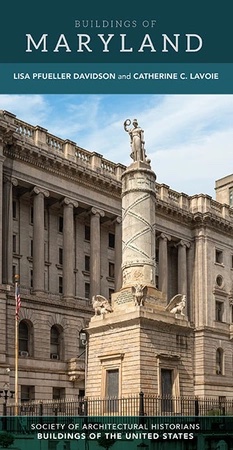With its deep-water river port and railroad connections, Pocomoke City developed in the late nineteenth century into a thriving economic center for Worcester County and the lower Delmarva Peninsula. A small settlement in earlier decades, it was incorporated as Newtown in 1865. Around this time the ferry crossing of the Pocomoke River was replaced by a bridge providing a connection to neighboring Somerset County. It was after reincorporation as Pocomoke City in 1878 that expansion began in earnest, with many residents employed in the local shipyards, canneries, or lumber mills. The town center experienced devastating fires in 1888 and 1922, prompting rebuilding of many two- and three-story commercial buildings along Market Street in brick or stone. After the later fire, Market Street was widened to better align with the new steel and concrete bascule movable bridge (1920, J. E. Greiner Company) over the Po-comoke River. Because of these fires, Pocomoke City’s commercial core has a noteworthy assortment of early-twentieth-century buildings while the residential neighborhoods offer a full complement of late-nineteenth- and twentieth-century house types ranging from the grand houses of mill owners and merchants to the tenant houses built for workers.
Writing Credits
If SAH Archipedia has been useful to you, please consider supporting it.
SAH Archipedia tells the story of the United States through its buildings, landscapes, and cities. This freely available resource empowers the public with authoritative knowledge that deepens their understanding and appreciation of the built environment. But the Society of Architectural Historians, which created SAH Archipedia with University of Virginia Press, needs your support to maintain the high-caliber research, writing, photography, cartography, editing, design, and programming that make SAH Archipedia a trusted online resource available to all who value the history of place, heritage tourism, and learning.

